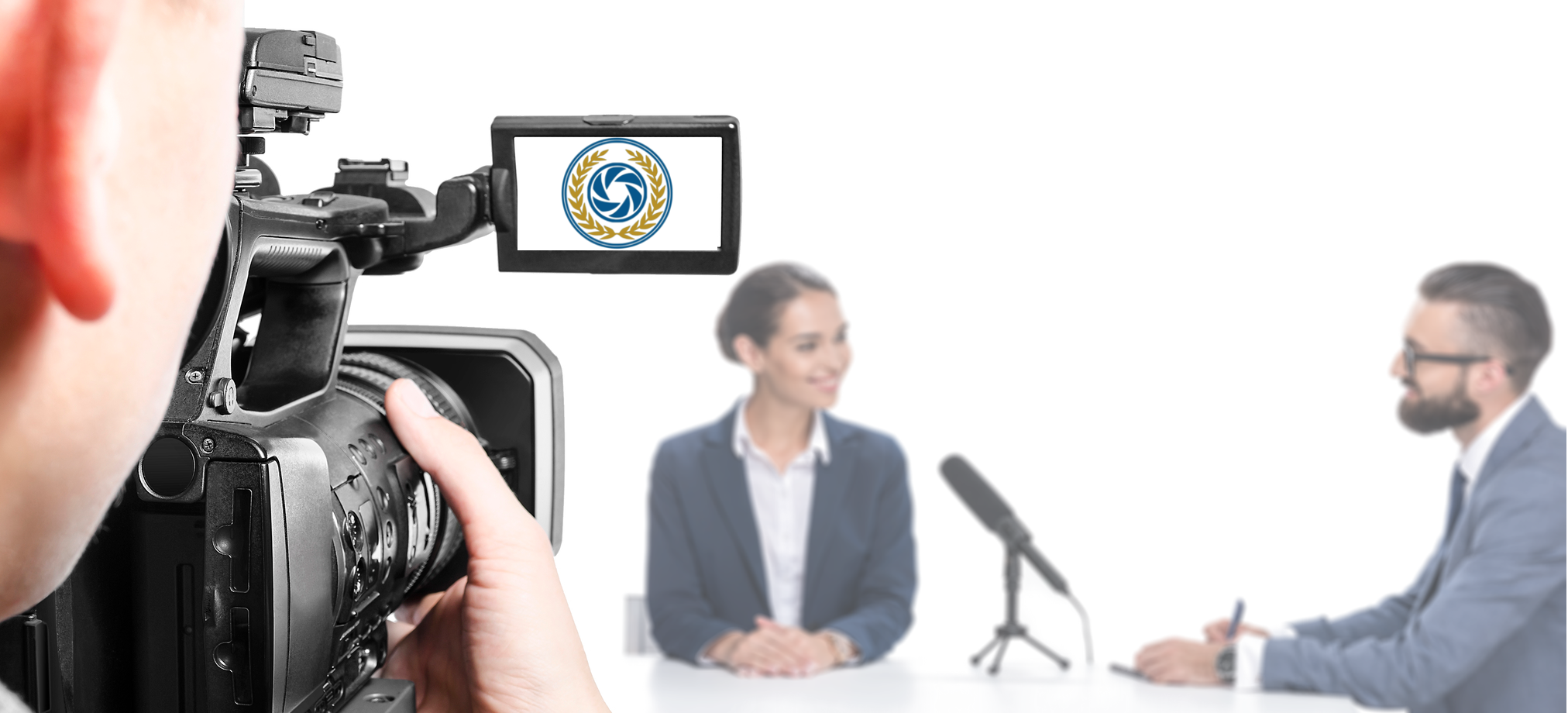The Relevance of Lawful Video Depositions in Modern Legal Solutions: What You Must Know
Legal video depositions have actually ended up being necessary in today's legal landscape. They provide a multidimensional sight of witness statements that traditional records just can not match. By capturing both non-verbal and verbal communication, these depositions boost the total understanding of a witness's credibility. Nonetheless, the effectiveness of video clip depositions rests on various factors, consisting of conformity with lawful standards and best techniques (legal video depositions). Discovering these components reveals their true value in modern legal services
What Are Lawful Video Depositions?
Legal video clip depositions work as an important tool in the litigation process. They include videotaping witness testimonies in a video style, catching both non-verbal and verbal communication. This method enables attorneys to record the demeanor, expressions, and responses of witnesses, giving a richer context for the testament. Generally carried out in a regulated setting, these depositions are led by lawyers who ask concerns while a court press reporter documents the discussion. The resulting video can be vital for test prep work, as it enables legal representatives to evaluate the trustworthiness of witnesses and refine their approaches. In addition, lawful video depositions can be made use of in different lawful contexts, varying from civil conflicts to criminal situations. The acoustic and visual components of video depositions improve the presentation of proof, making it a crucial element in the contemporary lawful landscape. Generally, they contribute significantly to the efficiency and effectiveness of legal proceedings.

Benefits of Video Depositions Over Traditional Approaches
Video depositions offer many advantages contrasted to conventional methods of taking witness testaments. One significant advantage is the ability to record both audio and visual components, providing a more extensive record of the witness's statements. This double style boosts clearness and permits lawyers to reference details subtleties during trial prep work. Furthermore, video depositions facilitate remote engagement, making it less complicated for witnesses that may be inaccessible for in-person looks because of geographical constraints or wellness issues.Moreover, video depositions can expedite the total deposition process, lowering the moment and costs connected with traveling and logistics. They also boost availability, as videotaped depositions can be quickly shared among lawful teams and referenced any time. This ease contributes to far better situation management and preparation. On the whole, video depositions stand for a modern, reliable method to collecting witness testimonies, straightening with the developing requirements of the lawful occupation.
The Duty of Body Language and Tone in Testimonies

In lawful video depositions, body language and tone play crucial roles in conveying a witness's reputation and credibility. Nonverbal hints can give insights into a witness's psychological state, affecting just how their testimony is viewed. Comprehending the influence of these components is important for jurors and attorneys alike when reviewing the reliability of a testimony.
Nonverbal Communication Insights
While verbal communication is commonly stressed in lawful testimonies, nonverbal cues such as body language and tone play a necessary duty in sharing credibility and feeling. Observers of depositions may note that a witness's posture, motions, and faces can greatly affect perceptions of reliability. For instance, consistent eye contact may signal confidence, while staying clear of stare can recommend dishonesty or discomfort. Likewise, the tone of voice-- its volume, pitch, and pace-- can give sensations of genuineness or unpredictability. Lawful experts should be in harmony with these nonverbal signals, as they often give important context that matches talked words. Comprehending these subtleties can boost the efficiency of depositions and influence the end result of legal process.
Emotional Tone Influence
The emotional tone conveyed throughout legal statements significantly influences exactly how a witness is regarded. Body language, singing inflections, and faces play vital functions in shaping the story of a testimony. A witness displaying confidence with constant eye get in touch with and a tranquil tone can instill a feeling of reliability and involvement. On the other hand, indicators of stress and anxiety, such as fidgeting or an unsteady voice, may cause suspicion concerning their account. The subtleties of emotional expression can affect the analysis of facts, making it necessary for legal experts to identify these cues. In video depositions, the auditory and visual elements incorporate, emphasizing the importance of emotional tone in sharing sincerity and reliability within the lawful process.
Reliability and Dependability
An essential factor in establishing integrity and reliability during testimonies hinges on the witness's body movement and intonation. Onlookers usually count on non-verbal cues-- such as eye contact, position, and gestures-- to examine a witness's genuineness. As an example, a witness that keeps eye her comment is here contact and displays open body language may be viewed as even more sincere and trusted than one who avoids eye contact or appears closed off. In addition, intonation plays a crucial duty; a constant, calm tone can strengthen the integrity of the statement, while fluctuations in pitch or volume might raise uncertainties. Inevitably, the combination of body language and singing tone significantly affects how a witness's statements are received and interpreted in a legal context.
Ideal Practices for Performing Video Clip Depositions
Performing video clip depositions requires careful planning and execution to assure a efficient and clear discussion of testament. Initially, it is very important to select a quiet, well-lit location to decrease disturbances and secure optimal video clip high quality. The tools needs to be examined ahead of time, including cams, microphones, and illumination, to avoid technical issues during the deposition.Next, celebrations included need to review the style and treatments in advance, making sure that everybody understands their roles. The deponent needs to be briefed on the procedure, including just how to respond clearly and concisely.Additionally, preserving an expert demeanor throughout the session is necessary. This includes refraining from talking over each other and confirming that all questions are directed appropriately. Lastly, it is vital to tape-record the deposition in a layout that enables very easy playback and review, maintaining the integrity of the testament for future usage.
Lawful Considerations and Conformity Issues
How do lawful considerations and conformity issues impact the performance of video depositions? Lawyers need to browse a complex landscape of policies, guaranteeing that video depositions stick to administrative policies and criteria. Conformity with legislations concerning privacy, approval, and tape-recording techniques is vital. For example, acquiring explicit authorization from all events involved is essential to stay clear of lawful repercussions.Additionally, the admissibility of video clip evidence in court can rest on conformity with step-by-step needs. Making certain that the tools used satisfies technical requirements is also vital, as low quality can undermine the deposition's reliability.Moreover, attorneys need to know any kind of specific state legislations that regulate video depositions, as these can differ greatly. Failure to attend to these considerations can not only endanger the integrity of the deposition but additionally influence the total situation strategy, ultimately affecting the client's lawful results.
Just How Video Depositions Effect Jury Perception
While video depositions can function as powerful tools in legal proceedings, their impact on jury understanding is considerable. The auditory and visual components of video recordings offer jurors with a much more complete understanding of witness attitude, reliability, and psychological actions. This multimedia method can improve the jurors' capacity to examine the reliability of testimony contrasted to typical text-based transcripts.Moreover, video clip depositions allow jurors to observe body movement, intonation, and face expressions, all of which can influence their interpretation of the witness's statements. The presence of a witness on display can humanize them, fostering empathy and link, which might persuade jurors' point of views. Alternatively, a witness who appears evasive or unreliable on video clip might lead to negative perceptions that affect a jury's choice. Ultimately, the vibrant nature of video clip depositions plays a crucial duty in forming how jurors translate proof and reach their decisions.
The Future of Video Depositions in Legal Method
As improvements in innovation proceed to reshape the lawful landscape, the future of video depositions is positioned for considerable development. Developments such as fabricated knowledge, online reality, and enhanced video clip conferencing devices are expected to simplify the deposition procedure and enhance accessibility. Attorneys might use AI-driven analytics to assess witness credibility and situation stamina a lot more effectively.Moreover, the combination of online fact can allow juries to experience immersive simulations of depositions, giving deeper context and understanding. Furthermore, the fad toward remote depositions is likely to persist, offering higher adaptability for clients and attorneys visit site alike.As remote work comes to be increasingly stabilized, video clip depositions will likely come to be common technique, decreasing expenses and time constraints associated with typical methods. In general, these technical innovations assure to improve the performance, efficiency, and ease of access of video clip depositions in lawful practice, inevitably changing how lawful professionals plan for trial.
Often Asked Questions
Just How Much Do Lawful Video Depositions Typically Price?

Can Video Clip Depositions Be Utilized in Any Kind Of Type of Case?
Video clip depositions can be utilized in various check my source types of cases, consisting of civil, criminal, and family legislation. Their versatility permits lawyers to existing witness testaments successfully, adapting to the certain demands of various legal situations.
What Devices Is Needed for a Video Clip Deposition?
To carry out a video deposition, essential tools consists of a top quality camera, microphone, lighting, and a trusted recording gadget. Additionally, a computer with modifying software program may be needed for post-production and formatting the final video clip.
How much time Does a Typical Video Deposition Last?
A regular video deposition lasts in between two to 4 hours, depending on the complexity of the instance and the number of inquiries presented. Prolonged sessions might occur, however breaks are usually integrated for individual comfort.

Are Video Depositions Admissible in Court?
Video clip depositions are normally permissible in court, given they stick to lawful standards and policies of evidence. Their usage improves clearness and maintains witness testament, helping in the judicial procedure during tests and hearings. Legal video depositions have actually come to be important in today's lawful landscape. Additionally, lawful video depositions can be made use of in various legal contexts, ranging from civil conflicts to criminal instances. In addition, video depositions help with remote engagement, making it simpler for witnesses that might be inaccessible for in-person looks due to geographical constraints or wellness issues.Moreover, video depositions can expedite the general deposition process, reducing the time and expenses connected with traveling and logistics. Making certain that the devices made use of satisfies technical standards is additionally important, as bad top quality can threaten the deposition's reliability.Moreover, attorneys should be mindful of any kind of specific state laws that regulate video depositions, as these can differ substantially. In addition, the pattern toward remote depositions is likely to persist, supplying greater flexibility for lawyers and clients alike.As remote job becomes significantly normalized, video depositions will likely become standard technique, reducing prices and time restrictions associated with conventional approaches.